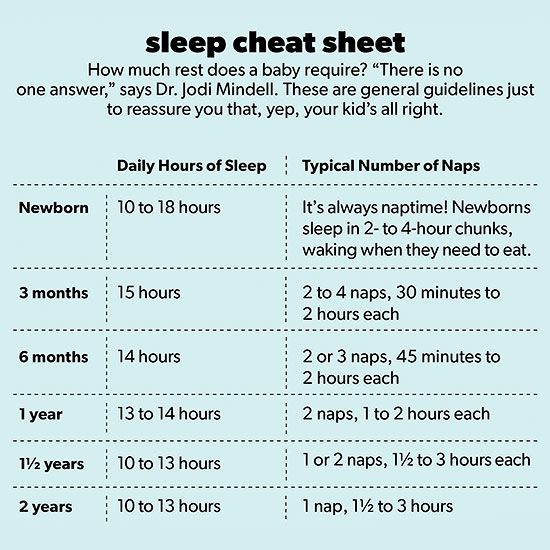Sleep Training Your 9 Month Old: A Nurturing Approach
Welcome to our step-by-step guide for sleep training your 9-month-old baby! If you’ve been wondering how to help your little one learn to sleep through the night, you’re in the right place. As a parent, ensuring your baby gets ample rest is crucial for their development and your well-being. We’re here to provide you with loving, tried-and-tested methods to make bedtime a peaceful experience for your family.
Understanding the Sleep Needs of Your 9 Month Old
Before we dive into sleep training strategies, let’s understand what’s normal for a 9-month-old’s sleep. At this age, your baby likely needs about 14 hours of sleep a day, which includes nighttime sleep and naps during the day. It’s common for 9-month-olds to experience sleep regressions due to developmental milestones or separation anxiety. But don’t worry, this stage is temporary, and with patience, you’ll both get through it smiling!
Establishing a Healthy Sleep Environment
Creating a soothing sleep ambiance plays a significant role in your baby’s sleep quality. Ensure the room is dark, quiet, and cool to promote better sleep. A consistent sleep space helps signal to your baby that it’s time to wind down. Consider a white noise machine to drown out other sounds and a comfortable crib fitted with a firm mattress and a well-secured fitted sheet.
Nailing Down a Bedtime Routine
The key to sleep training is a predictable and calming bedtime routine. A routine may include a warm bath, cuddles, reading a book, or singing lullabies. Consistency is vital; aim to do the same activities in the same order each night. This routine helps cue your baby’s brain that sleep time is approaching, making it easier for them to drift off to sleep.
Gentle Sleep Training Methods for Your Little One
There are numerous sleep training methods out there, and it’s essential to choose one that aligns with your parenting style and your baby’s temperament. Some parents prefer gradual approaches like the ‘Ferber Method’ or ‘Chair Method,’ where you slowly encourage your baby to self-soothe. Others might opt for a more immediate approach. Remember, every family is unique, and what works for one might not work for another. Listen to your instincts and your baby’s cues.
Dealing with Night Wakings
During this age, it’s common for babies to wake up during the night. If your baby is crying, it’s okay to reassure them without creating new sleep crutches. You can gently pat them or offer soothing words before leaving the room. Over time, they’ll learn to fall back asleep on their own.
Implementing these strategies will lead to more restful nights, but remember: consistency is your best friend in sleep training. And patience, lots of patience. In our upcoming sections, we’ll detail specific sleep training techniques and address common challenges and solutions. Ready to embark on a journey to better sleep? Let’s start with creating that perfect bedtime routine that can work wonders!
To make this journey a little bit easier for you and your little dreamer, it’s important to acknowledge that sleep training is not a one-size-fits-all solution. We will walk you through recognizing sleep cues, setting realistic sleep goals, and adjusting your techniques as your baby grows and changes. With our comforting and comprehensive guide, restful nights are just around the corner—because everyone deserves a good night’s sleep, especially hardworking parents like you!
Remember to bookmark this guide and share it with fellow parents on the same sleepy boat. Stay tuned as we delve into each step with empathy and expertise, transforming bedtime from a challenge into a cherished routine. Get ready to embark on a gentle journey to dreamland with your 9-month-old—happy snoozing ahead!

Five Things Parents Should Know in Preparing for Sleep Training a 9-Month-Old
-
Recognize Sleep Readiness
Your baby’s sleep signals are crucial cues. Look for signs of sleepiness like rubbing eyes, yawning, or fussiness. Initiating the bedtime routine as soon as these signs appear can make sleep training more effective and prevent overtiredness, which can actually make it harder for babies to settle down.
-
Prepare for Consistency
Consistency is the golden thread of sleep training. When you decide on a method and a routine, sticking to it will help your infant understand and adapt to the new sleep patterns. This might test your patience, but consistency will pay off with sustained sleep improvements over time.
-
Set a Comforting Bedtime Routine
A comforting bedtime routine might be the most enjoyable part of sleep training. It’s a time for bonding and relaxation. The routine can include a bath, a gentle massage, storytime, or soft music. This sequence of activities should be pleasant, calming, and always ending in the sleep environment.
-
Create an Ideal Sleep Environment
Where your baby sleeps can greatly impact their ability to fall and stay asleep. Keep the sleep environment dark, cool, and quiet. If you’re using a crib, ensure it meets safety standards with a firm mattress. Room-sharing is okay, but avoid co-sleeping during sleep training.
-
Patience and Self-Care
Patience is perhaps the most crucial part of sleep training. Expect good and bad nights, and don’t get discouraged by setbacks. Take care of your mental and physical well-being during this time, as a relaxed parent is more likely to have a relaxed baby.
Detailed Sleep Training Techniques
We will explore various sleep training techniques that can cater to diverse parenting styles and baby temperaments. From the ‘No Tears’ method to ‘Controlled Crying’, we have insights and tips on how to personalize these strategies for your family’s needs. Understand each method’s core principles and learn how to apply them lovingly and effectively. Be on the lookout for our deep dive into these sleep training methodologies.
Addressing Common Challenges and Solutions
Sleep training is not without its hurdles. You may face issues such as illness, teething, or travel disrupting your baby’s sleep routine. Our guide will provide solutions to these common challenges, helping you maintain the progress you’ve made. We’ll also discuss how to gently handle night feedings, early wakings, and naps, to ensure comprehensive sleep success.
As we unfold the myriad of elements involved in teaching your 9-month-old to sleep through the night, remember that each small step is progress. Your dedication, coupled with our supportive guidance, is the recipe for a tranquil night for both you and your baby. The journey toward restful nights and joyful mornings continues, and we’re here for you every step of the way!
See more great Things to Do with Kids in New Zealand here. For more information see here
Disclaimer
The articles available via our website provide general information only and we strongly urge readers to exercise caution and conduct their own thorough research and fact-checking. The information presented should not be taken as absolute truth, and, to the maximum extent permitted by law, we will not be held liable for any inaccuracies or errors in the content. It is essential for individuals to independently verify and validate the information before making any decisions or taking any actions based on the articles.




